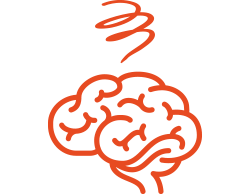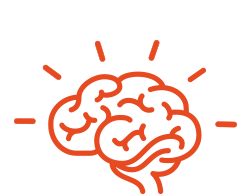Sickle cell disease is associated with impaired cognition and psychological disorders8

IMPAIRED COGNITION
In Brazil,
~20%
lower IQ scores have been reported in patients with SCD (eg, verbal and performance)9*

DEPRESSION
In the United States,
35%
of patients with SCD are diagnosed with depression10†

ANXIETY
In Nigeria,
13%
of adults with SCD experience anxiety11‡
*Comparing 64 patients with sickle cell anaemia and 64 subjects without SCD (control group).
†A total of 142 patients completed the study.
‡Based on 253 patients with SCD.










